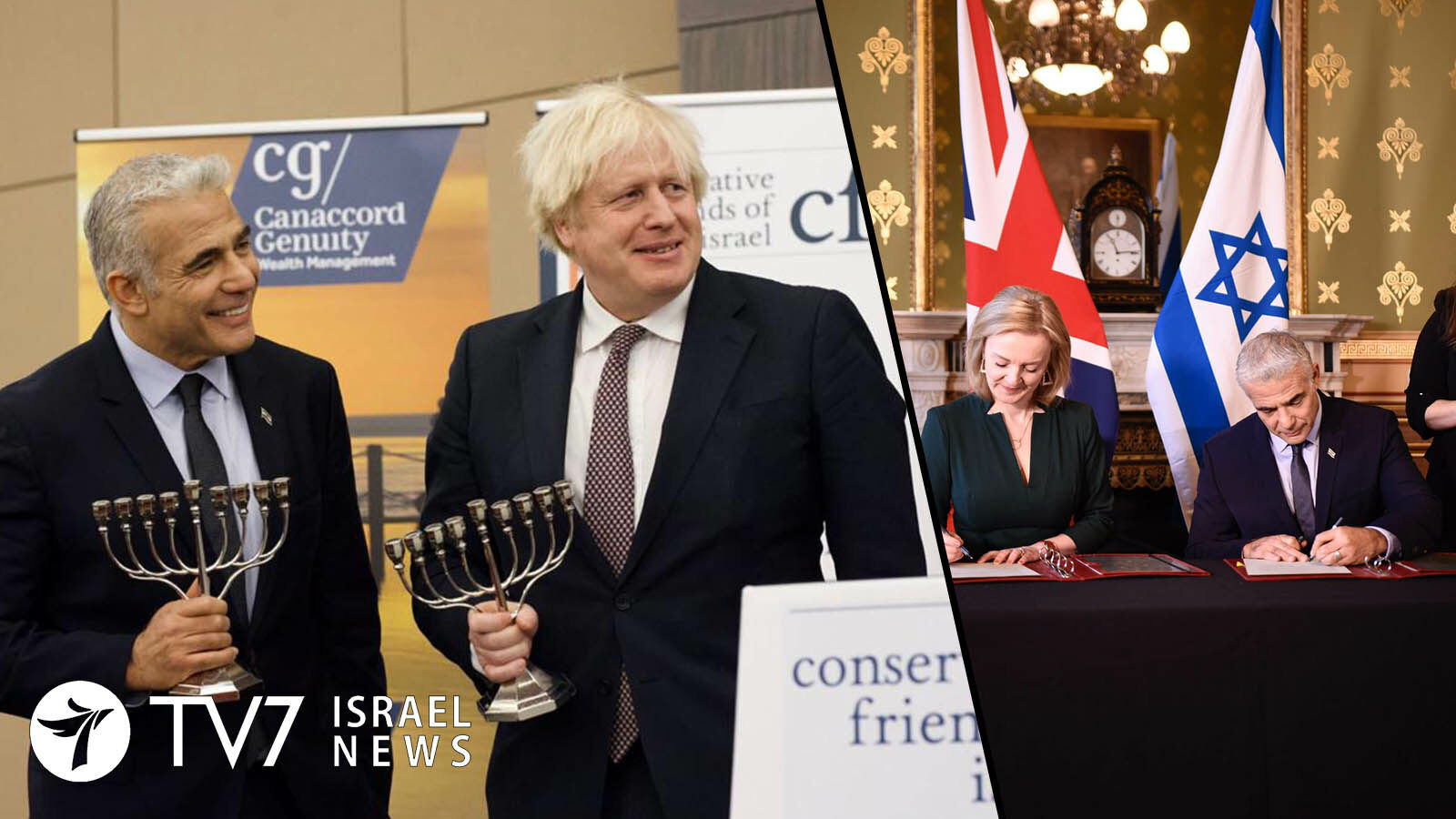The announcement came amid an official visit to the London by Israeli Foreign Minister Yair Lapid.
By Erin Viner
Britain and Israel will “work night and day” in preventing Iran from obtaining nuclear weapons, the foreign ministers of the two countries wrote in a joint article published in the Telegraph newspaper.
“The clock is ticking, which heightens the need for close cooperation with our partners and friends to thwart Tehran’s ambitions,” the UK’s Secretary of State for Foreign, Commonwealth and Development Affairs Liz Truss and her Israeli counterpart wrote.
While standing aside Secretary Truss at the Foreign Office, Lapid said, “I know that we are committed to the same goal – Iran will never be allowed to get a nuclear weapon.”
He further asserted that the only reason Tehran agreed to a 7th round of indirect talks in Vienna aimed at reviving the 2015 Joint Comprehensive Plan of Action, that opened yesterday, is to “play for time, earn billions from the removal of sanctions, continue to deceive the world, and covertly advance their nuclear program.”
Saying, “This is what they have done in the past, and it is what they will do this time as well,” Jerusalem’s top diplomat called on world leaders to prevent Iran from obtaining a atomic bombs with the imposition of even “tighter sanctions and supervision,” while conducting any negotiations with the Islamic Republic “from a position of strength.”
Lapid, who also serves as Israeli Alternate Premier, and Secretary Truss also signed a Memorandum of Understanding (MOU) on strategic cooperation between Israel and the UK.
“This is not only an agreement between close friends, but between two technological superpowers,” said Lapid, adding that it will lead to a free trade agreement between the United Kingdom and Israel that “will strengthen economic, security, technological and cultural ties between us.”
“This agreement is not just a win-win, but a must-must,” he added.
The 10-year agreement involves joint collaboration in the cybersecurity, technology, trade and defense sectors. According to the ministers’ co-authored Telegraph article, Israel will officially become Britain’s “tier one” cyber partner, in a bid to improve its cyber defense as countries around the world face increased threats.
During a later meeting with UK Prime Minister Boris Johnson, at a meeting of Conservative Friends of Israel (CFI), Lapid said that, “The connection between Britain and Israel is not a symbolic connection, but a deep, practical friendship between political and security partners, who see eye-to-eye on most of the geopolitical issues that preoccupy our world. This friendship between us was most recently reflected in the government’s decision to proscribe all of Hamas as a terrorist organization.”
He then reiterated, “Our friendship will be reflected in the coming months in our shared determination to prevent Iran from acquiring a nuclear weapon, at all costs. Israel will always protect itself, but we know we are not alone. And our hand is outstretched for peace.”
Prime Minister Johnson joined the Israeli leader in lighting the second candle for the Jewish holiday of Hanukah.
In related developments, Israeli Defense Minister Benny Gantz revealed that “In the past days, Israeli teams have shared intelligence with our friends around the world that points to Iran’s current process of dashing towards a nuclear weapon, blatantly violating the agreement that is in place with Europe.”
In remarks addressed to “our partners,” the top Israeli defense chief said he wanted to “stress the time that passes must have a price expressed in sanctions or military alternatives, so that Iran will stop its nuclear race and its regional aggression.”
While Israel does “not oppose negotiations,” Minister Gantz insisted that the Islamic Republic’s “stalling” tactics in order to buy time to acquire nuclear weapons will not be tolerated.
“We recognize the international community’s work to reach a diplomatic solution with the Iranians,” underscored Gantz, while warning that Israel “must continue, as a strong and independent country to maintain the capability to defend ourselves.”
